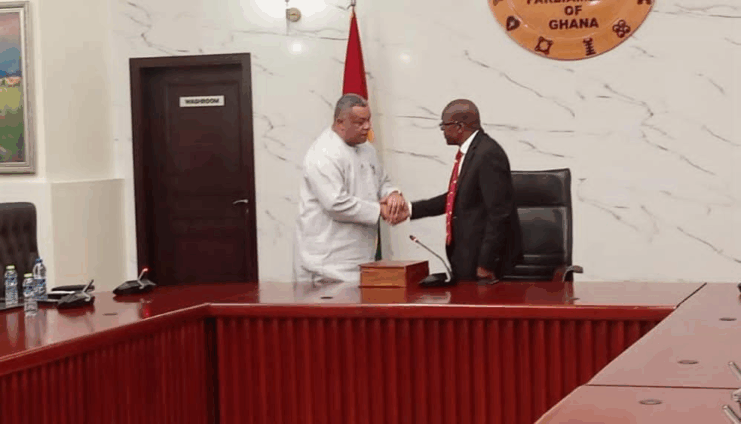Speaker of Parliament, Alban Bagbin, has revealed that the Parliamentary Service will implement the 24-hour economy policy, making it the first public institution to operationalize the initiative ahead of its national rollout.
Speaking during the official submission of the final policy framework by representatives from the Office of the President on Thursday, June 26, Bagbin said the move is part of efforts to respond to growing workloads in Parliament and create new employment opportunities.
“This means they are going to work more hours; they will be reporting at 8:00 a.m. and may be going home at 10:00 p.m. or sometimes 11:00 p.m.—particularly those in the official division of the House,” he noted.
“This will allow more people to work here and will help reduce unemployment. I can assure you that the load of work here is unimaginable.”
His announcement comes after Parliament adjusted its sitting time from 10:00 a.m. to 2:00 p.m., increasing pressure on support staff.
Presidential Advisor Goosie Tanoh, who led the presentation, confirmed that the full launch of the 24-hour economy will take place on Wednesday, July 2, 2025. He described the policy as a transformative strategy focused on economic revitalization through nonstop activity.
He said the policy is anchored on three main pillars: transforming production, improving supply chain and market systems, and enhancing human capital. These are supported by strategic programmes:
Grow 24 – modernising agriculture
Make 24 – boosting industrial and manufacturing capacity
Connect 24 – streamlining logistics and distribution
Aspire 24 – cultivating a national mindset geared towards productivity
The 24-hour economy is a key promise of the National Democratic Congress (NDC) and will be implemented in phases, starting with Parliament and gradually extending to other sectors nationwide.


